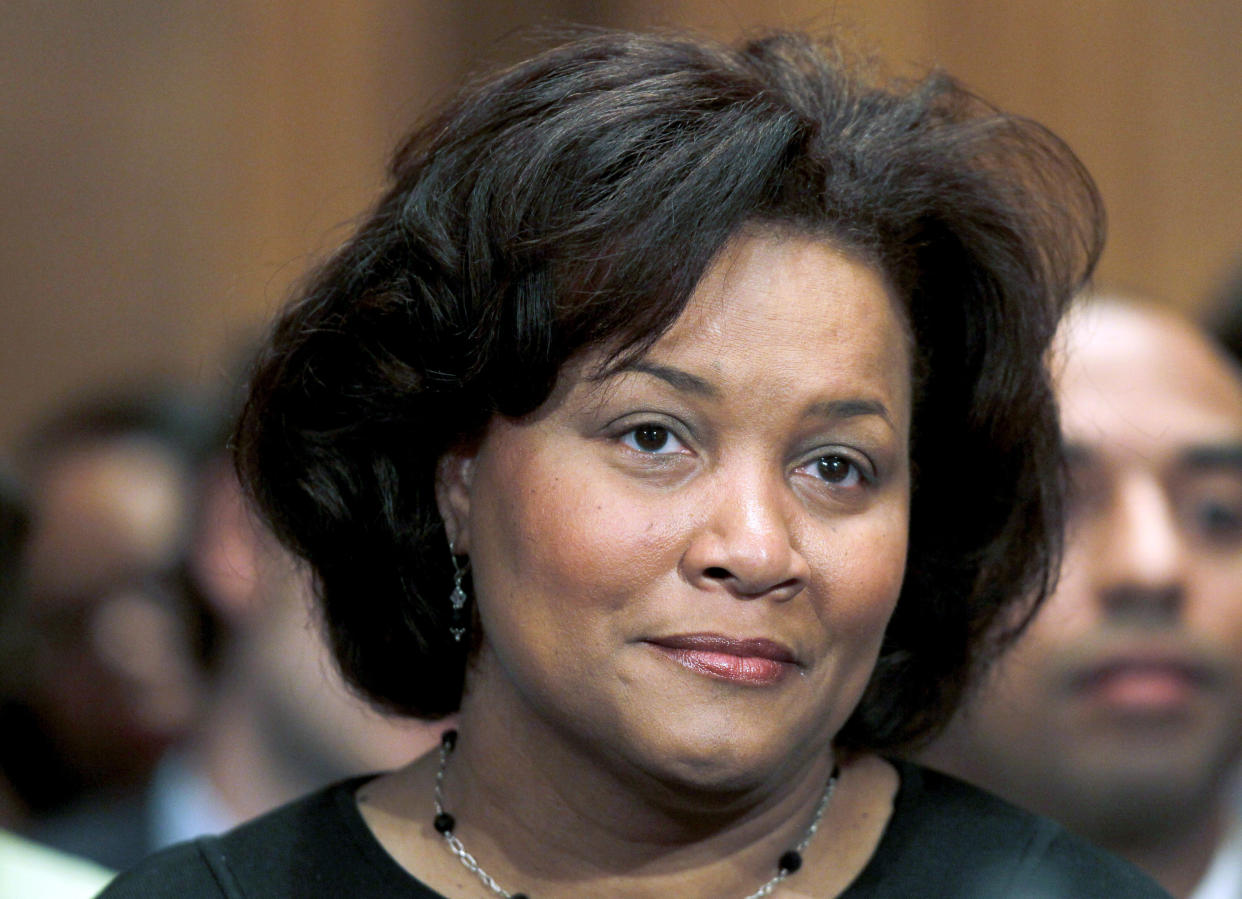'Awesome person': Lindsey Graham praises one of Biden's Supreme Court candidates
Sen. Lindsey Graham, R-S.C., on Sunday heaped praise on U.S. District Judge J. Michelle Childs, who is speculated to be one of President Biden's leading contenders for the Supreme Court.
"I can't think of a better person for President Biden to consider for the Supreme Court than Michelle Childs," Graham said on CBS's "Face the Nation." "She has wide support in our state. She is considered to be a fair-minded, highly gifted jurist. She's one of the decent people I've ever met."
"I can't think of a better person for President Biden to consider for the Supreme Court then Michelle Childs," @LindseyGrahamSC tells @margbrennan. pic.twitter.com/I90qMetX2d
— Face The Nation (@FaceTheNation) January 30, 2022
Graham, a member of the Senate Judiciary Committee, stopped just short of promising to vote for Childs if she becomes Biden's nominee, but the praise by the on-again, off-again Trump ally is sure to draw notice as the White House navigates the fraught politics of Supreme Court nominations.
Any Republican votes for Biden's pick would help create a bipartisan win ahead of the midterms, and it would relieve the pressure on Democrats of having to secure every one of their votes in the 50-50 chamber.
Childs, who hails from Graham's South Carolina, is one of several potential candidates expected to be on Biden's shortlist to replace Supreme Court Justice Stephen Breyer, who announced his resignation last week.

During the 2020 campaign, Biden made the historic promise to name a Black woman to the Supreme Court, and the White House quickly reaffirmed the vow after the news of Breyer's resignation. That quickly drew the spotlight to some of the leading Black female jurists in the country.
Along with Childs, the early discussions have reportedly focused on California Supreme Court Justice Leondra Kruger and U.S. Circuit Judge Ketanji Brown Jackson. Other names in the mix include U.S. District Court Judge Wilhelmina Wright and New York University law professor Melissa Murray.
Childs is also notable for her support from Rep. Jim Clyburn, D-S.C., the architect of Biden's pledge to name a Black woman to the court. Clyburn's 2020 endorsement is widely credited with helping turn around Biden’s primary campaign after bruising losses in Iowa and New Hampshire.
Republican criticism of Biden's reported shortlist of candidates has been focused on the president's considering only Black women for the job. Centrist Sen. Susan Collins, R-Maine, another key vote for Biden, on Sunday called his overt statements about the vacancy "clumsy at best."
"Put me in the camp of making sure the court and other institutions look like America," @LindseyGrahamSC rejects the notion that President Biden promise to nominate a black woman to the Supreme Court is affirmative action, as his colleague Sen. Roger Wicker had suggested. pic.twitter.com/KCU6cIFXf9
— Face The Nation (@FaceTheNation) January 30, 2022
But Graham defended Biden's promise and argued that Childs would be an "incredibly qualified" candidate even if race and gender were not considered.
"Put me in the camp of making sure the court and other institutions look like America," Graham told CBS, noting that Ronald Reagan made a similar promise to name a woman to the Supreme Court. "Michelle Childs is incredibly qualified. There's no affirmative action component if you pick her. She is highly qualified," he added.
Graham was particularly enamored with Childs's educational background and experience.
"It would be good for the court to have somebody who's not at Harvard or Yale. She's a graduate of the University of South Carolina. A public-education background. She's been a worker's comp judge. She's highly qualified. She's a good character. And we'll see how she does if she's nominated. But I cannot say anything bad about Michelle Childs. She is an awesome person," he said.
Although Graham has been a relatively partisan Republican in his votes and public comments, he has been deferential to Democratic and Republican presidents alike to name their own picks to the Supreme Court. He was a yes vote on then-President Barack Obama's nominees of Elena Kagan and Sonia Sotomayor.
Partisan divisions in the Senate have increased over the years, however, raising questions about whether broad bipartisan votes for Supreme Court nominations are still possible.
